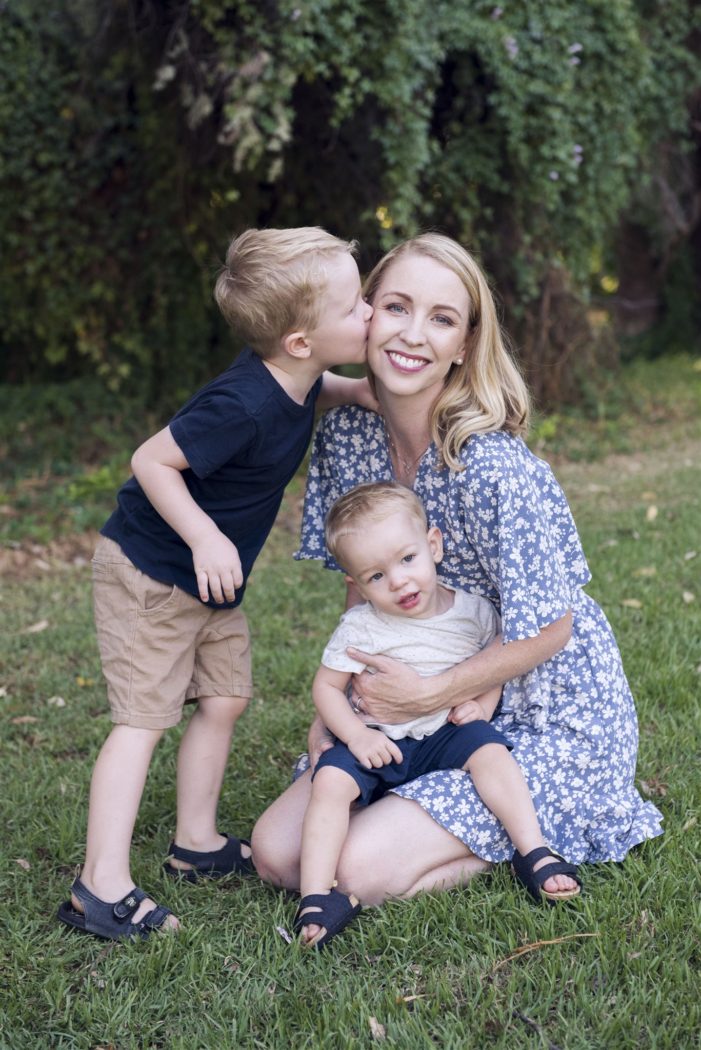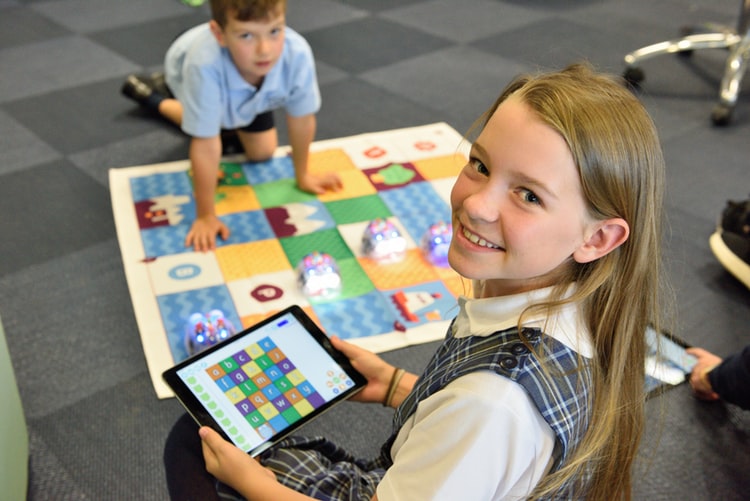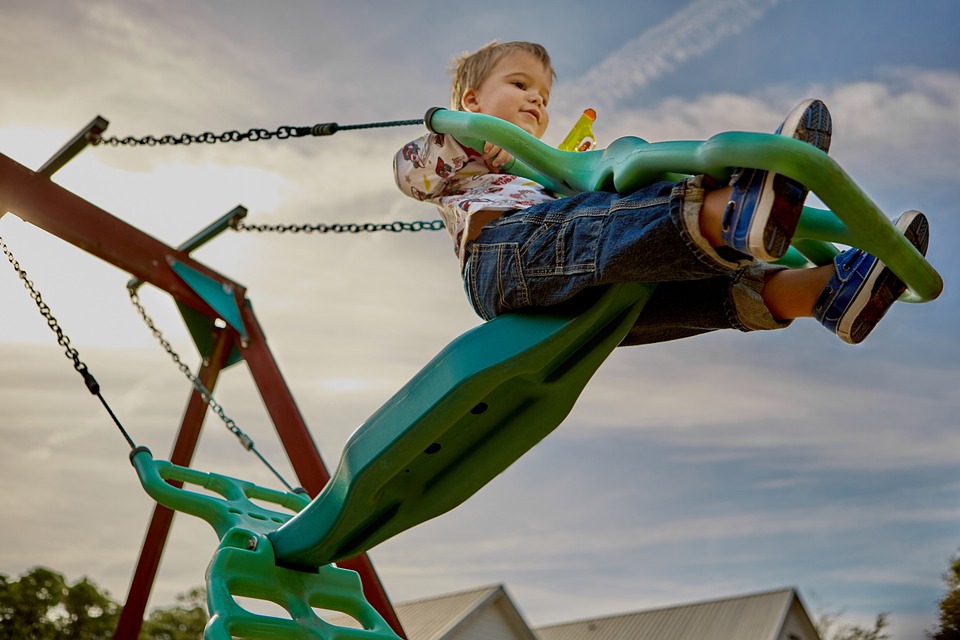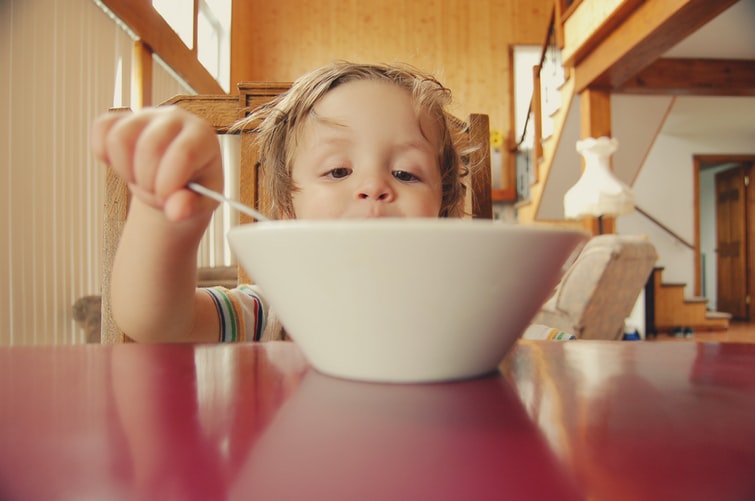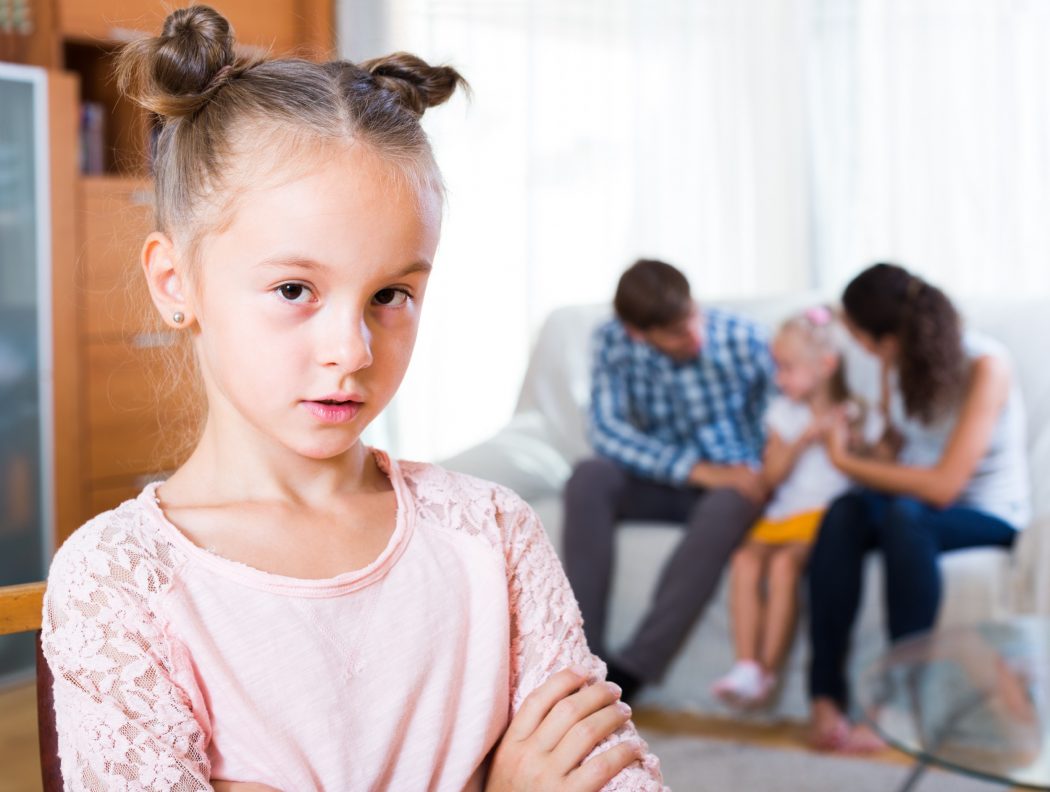“If I can’t find my perfect job, then I need to create it.”
This was the catalyst that encouraged 33-year-old Perth mother of two, Chevon Semmens, to launch Little Land, an interactive role-play centre for young children to play and learn.
From a young age, Chevon had a passion for play, she aspired to work with children and own a childcare centre. Despite these dreams, Chevon opted for a career in marketing and advertising.
However, her interest in play and learning persisted. Chevon volunteered for over 10 years with Radio Lollipop, providing entertainment to children during their stay at Perth’s Princess Margaret Hospital. Chevon recalls always finding a way to integrate play and learning, even if they were “just playing Uno.”
While on maternity leave with her first child, Chevon stumbled across a photo of a little girl with a child size shopping trolley at a role play centre in the UK. Chevon was excited by the idea of a role-play centre, “I knew this concept would come to Perth eventually and was looking forward to being able to take my own children.”

Prompted by a desire to transition into a different career, Chevon used the opportunity of maternity leave to consider her options and compile a list of priorities, “I wanted it to be a business that involved working with children and it had to be something creative”.
Photo credit: Lanie Sims
“I knew my ideal job probably didn’t exist, so I had to invent it.”
Inspired by the image of the little girl with the shopping trolley, Chevon announced to her husband Kayne, “I am going to open up a role play centre. He thought I was mad.”
With unyielding determination, Chevon took on the challenge of convincing her husband she could make this dream a reality.
Chevon’s family and friends became sounding boards for her new venture. “Many thought it was a good idea but probably never assumed I would go through with it, while others felt the idea was too gimmicky.” Undeterred, Chevon used their constructive feedback as encouragement to eradicate potential flaws.
“I knew the concept could work and I knew I would enjoy taking my kids there, but would others?” Chevon put together an advisory group, consisting of Paediatric Occupational Therapists, Paediatric Speech Pathologists, Early Childhood Educators, Primary Teachers and professionals who worked with children with autism. Chevon used their expert knowledge in conjunction with her marketing expertise to educate parents about the benefits the role play centre would bring.
Despite Chevon’s confidence and robust business plan, the process from conceptualisation to delivery was anything but quick. Two years of extensive planning included a painstaking search for the right premises.
“I did not want to settle for a half option. The location needed to be central, close to families, with plenty of parking and onsite facilities.”

In the midst of the search, falling pregnant with her second child threw another “amazing spanner into the works.” Financially, Chevon also needed enough money to launch the business. Rather serendipitously, she was offered voluntary redundancy from her existing day job. “It happened to be the exact amount of money needed to get the idea of the ground.”
The dream was about to become a reality.
Chevon opened the doors of Little Land in May 2019. “We were fully booked for the first three months” and the success has continued, with some ebbs and flows in the mix, as they approach their one-year anniversary.*
What can someone expect from a trip to Little Land?
Little Land offers a welcome break from the usual loud colours and noises you expect of a childcare centre. “Many parents comment on how surprised they are at how calm the environment feels.” The welcome area is filled with calming pastel colours, while the sound system plays modern songs in the form of lullabies.
Beyond the welcome area, you will find Little Land’s ‘little town’, complete with a shopping centre, school; home; doctor’s surgery; café; hairdressing salon; construction zone and veterinary practice.
Role-play is at the forefront of play between the ages of 18 months and 8 years and so each area is uniquely designed to meet the needs of children within this age range. The numbers are kept to a maximum of 30 children per session with a total of four sessions per day to avoid overwhelm for the children.
Children are given the opportunity to explore formal settings in an informal way, enabling them to take control of the experience. Many children were recently role-playing evacuations and ‘safety first’ procedures following recent bush fires. Parents who visit the centre express how valuable it is for children to be able to visit these locations on a small scale and at their own pace.
What does the future hold for Little Land?
Chevon is proud to announce Little Land have worked with the Autism Association in Western Australia to launch weekly ‘Sensory Sessions’. “We reduce the number of people who attend, change the format and provide a story book for children to read beforehand of what to expect, we also use a timer instead of a bell to mark the end of the sessions.”
Chevon’s dream is for play and learning to be accessible to all Australians. “We currently have people travelling over an hour to see us, so I would like to possibly open a second location to make it more accessible. We have also launched several pop ups, including four stalls at local events and shopping centres to help spread awareness of the benefits of our centre.”
How to balance motherhood and business
As a mum to three a half year old Zack and 16 month old Archer, Chevon admits life can get busy.
“Someone said to me recently, maybe it’s not so much as trying to find a balance between being a mother and business owner, perhaps it’s finding a blend of the two.”

“I am fortunate that I have a great husband who helps pick up the slack, whether that’s with our children or the business. We try to eat well and get as much sleep as you can with a 16 month old.”
Chevon and her husband make time for themselves separately to re-energise, “I try to get up earlier a couple of days a week to go for an hour long walk, this gives me the energy I need for the next couple of days.”

Chevon also has a day that is non-negotiable, “I always have Mondays with my boys, to play and just spend time with them, it revitalises me and reminds me how we never stop learning.”
Photo credit: Lanie Sims
Despite the huge success of the business, Chevon has realised it’s the small wins she celebrates, “I found in the initial stages of Little Land, we were so busy ‘doing’ that we didn’t stop to appreciate what we had achieved, so now we make an effort to regularly pause and express gratitude for what we have accomplished.”
Keep up to date with the latest Little Land news, @littleland_perth
Thank you to Photographer, Lanie Sims for all images supplied in this article.
*Due to the COVID-19 pandemic, Little Land has closed for the unforeseeable future. During this time, we’re determined to continue inspiring play and learning for the community and we hope it isn’t too long before we see the return of big smiles on little faces as they run through our big and little doors to wander and explore the magic.



